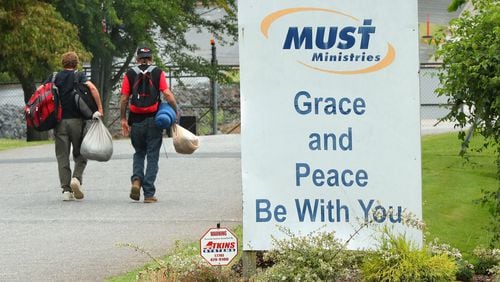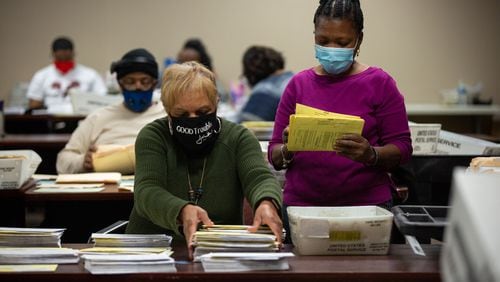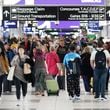In the face of growing suburban poverty and a diminishing stock of affordable housing, Cobb County’s only walk-up homeless shelter is looking to grow.
MUST Ministries has been serving the homeless for more than 20 years at its current location off Cobb Parkway.
The organization’s bid to relocate to a bigger facility half a mile down the road has sparked backlash from residents who fear the move threatens their safety and their property values.
It's a dilemma that has played out across the metro area, as a general desire to help the homeless bumps up against specific neighborhood concerns. Observers will be watching Atlanta over the coming months to see how city leaders handle the closing of the Peachtree-Pine shelter after a decade of legal battles.
Dwight “Ike” Reighard, president of MUST, said the Cobb shelter’s 72 beds are simply not enough, and his organization is forced to turn away 200 to 300 people a month, mostly women and children.
The proposed facility at the corner of Cobb Parkway North and Bells Ferry Road—which would replace the current shelter—could fit between 120 and 130 beds. Reighard wants to add more family units and a separate wing for military veterans, in addition to administrative space.
But it’s not the women and children staying at the shelter who concern local businesses and residents.
MUST also provides daytime services to what the organization calls “outreach clients,”—mostly men who sleep outside rather than in the shelter. Outreach clients can come in for lunch, clothes, showers and social services. MUST’s partner organizations have given out bikes and sleeping bags as well.
Outreach clients do not sleep at the shelter, either because it’s full or because they might struggle with mental illness or drug and alcohol addiction. The shelter has a strict no-drugs, no-alcohol policy and administers breathalizers nightly.
Saif Siddique of the Briarfield Homeowners’ Association said he understands the value of MUST’s work and has donated in the past. But he worries about providing services to troubled individuals less than a mile from his home.
“From a resident standpoint, we are concerned because of the incidents that have happened,” he said, referring to drug use and other illegal activity around MUST’s shelter that has brought out the police. “They (MUST) are doing something good but people are taking advantage of it rather than taking the proper help they can get.”
His sentiments were echoed by some 150 other residents who signed an online petition against the shelter’s relocation, which will come before the Marietta Board of Zoning Appeals on August 28.
Officer Chuck McPhilamy, a spokesman for the Marietta Police Department, said officers have responded to calls in the area about public drunkenness, panhandling, obstructing traffic, camping on private property without permission, and excessive littering. Some homeless individuals engage in petty crime to get money for drugs and alcohol, he added.
“With MUST talking about creating a larger shelter, this could bring an increase in calls for service near their new facility,” he wrote in an email.
In the meantime, CobbLinc, the county’s public bus service, said it removed two bus shelters along Bells Ferry Road near Cobb Parkway after recieving complaints about “trash, debris, and non-riding patrons at bus shelters.”
MUST president Reighard said he is working with police, residents and business owners to address their concerns. But the number of outreach clients is small, he said, and his organization has a moral obligation to help them as well.
“Here’s what we’re guilty of: We’re guilty of feeding people,” Reighard said.
Reighard said the vast majority of people MUST serves are locals. Those who think his organization attracts homeless people to Cobb and Marietta, or that the problem would disappear if MUST closed, are in denial about the pervasiveness of homelessness in their own community, he said.
Reighard said the destruction over the past few years of Castle Lakes mobile home park and a handful of low-rent apartments on the street formerly known as Franklin Road displaced families who ended up in MUST's shelter. Rising housing costs have also pushed people out of their homes, he said.
Official numbers from the Department of Housing and Urban Development show Cobb’s homeless population held steady or decreased between 2013 and 2016, from 495 to 405.
Advocates for the homeless say those surveys are one-night counts and don’t fully capture the extent of the problem. While Cobb is generally percieved as being well off, there are still deep pockets of need made worse by a metro-wide trend of rising suburban poverty.
Protip Biswas, vice president of homelessness & place based initiatives for United Way of Greater Atlanta, said it’s difficult to accurately track the homeless population and the demand for services is higher than the numbers suggest.
“It’s the very low income that slip into homelessness easier,” he said. “A slight loss of job, a slight crisis and they’re homeless.”
Services are also needed to support those who may be chronically homeless due to mental illness or addiction, he added.
Biswas said he is optimistic that homelessness can be addressed regionally, “provided services like MUST Ministries can grow” and affordable housing remains an option.
Reighard said he’s noticed in increase in the number of multi-generational families, including children and grandparents, seeking shelter.
Last year, Marietta City schools identified 405 homeless students, while Cobb County schools identified 1,730 such students.
The schools define homelessness as lacking a “fixed, regular and adequate nighttime residence.” This includes children in unstable or temporary housing, such as extended stay motels, or doubled up with other families.
Kyle is among MUST’s outreach clients and agreed to sit down with a reporter at the organization’s Loaves and Fishes Community Kitchen recently. He asked to use his first name only due to the stigma associated with addiction and homelessness.
A construction worker by trade, Kyle spent 20 years building a life for himself and his wife in Cobb before his addiction got the best of him last year. Now, he sleeps in the woods or, if he’s lucky, he’s invited to stay with friends at a motel or in a house. For a little while, anyway.
“It’s like being in a hole ten foot deep and you can’t see,” he said. “You’re sinking and there’s no way out.”
Kyle continues to struggle with his addiction and hopes to get on a wait-list for housing. He urged residents not to judge all homeless people by a “few bad apples.”
“I don’t give up, I keep pushing on,” he said. “It’s going to get better.”
MYAJC.COM: REAL JOURNALISM. REAL LOCAL IMPACT.
The AJC's Meris Lutz keeps you updated on the latest happenings in Cobb County government and politics. You'll find more on myAJC.com, including these stories:
Never miss a minute of what's happening in Cobb politics. Subscribe to myAJC.com.
In other Cobb news:








